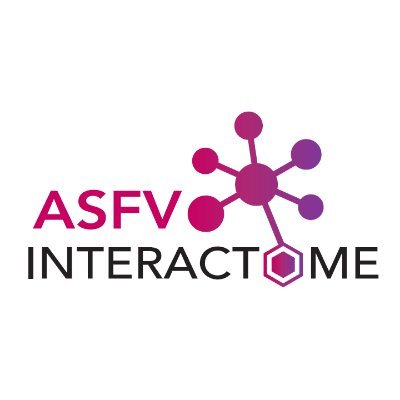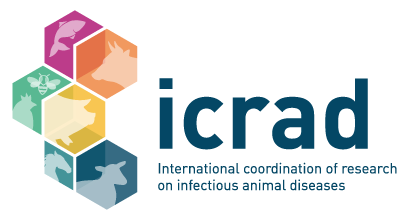Project details
Acronym: ASFVInt
Researcher: Dr Marie-Frédérique Le Potier
Countries: France, Estonia, Germany, Spain, United Kingdom
Organisations:
Website: pirbright.ac.uk

Project Summary
Recent outbreaks of both human (SARS-CoV-2, Zika, Chikungunya) and animal (African swine fever, influenza, or bluetongue) viruses have recalled the permanent threat that viral epidemics represent.
Among them, African swine fever virus (ASFV) is considered as the major reemerging threat in livestock populations since it has increased in its incidence and spread over the last 10 years in Europe, Asia and Africa causing high socio-economic burden and impact on animal health.
Therefore, a major challenge is the development of strategies to prevent and control ASFV, since efficient vaccines or antiviral treatments are not yet available. However, the knowledge of the functions of viral proteins and their interactions with host proteins is a prerequisite for the rational development of new antiviral strategies or vaccines.
Functional characterization of virus-host protein-protein interactions will be critical to understand how viral proteins target cellular functions to allow viral replication and spread. To achieve this goal, we will use high-throughput systems biology approaches to map interactions between viral and cellular proteins in a systematic way. In this project, six partners from leading research institutes in animal health (ANSES, FLI, INIA, INRAE, TPI) and bioinformatics (UTARTU) will combine their expertise in ASFV and protein-protein interactions to define and validate the first ASFV interactome.
As a starting point, a high-throughput yeast two-hybrid (Y2H) approach will be taken using 80 selected proteins encoded by ASFV as baits to screen a cDNA library from domestic pig macrophages, the target cells for ASFV replication. An affinity purification mass spectrometry (APMS) method will also be used to extend our functional interactomic strategy in a multiparametric analysis.
Data obtained from our laboratories and others have provided evidence that ASFV targets the host type I interferon and autophagy responses which could play a significant role in ASFV virulence and pathogenesis.
Therefore, in parallel to these unbiased proteomic approaches, the function of selected ASFV proteins in IFN and autophagy cellular pathways will be studied using multiple techniques. Cellular interactors of ASFV will be selected through in silico analyses on the basis of their biological role within the host cell and/or high degree of network connectivity. The most relevant interactions will be validated by co-immunoprecipation, AP-MS, and NanoLuc two-hybrid (N2H) and characterized in detail by microscale thermophoresis. After confirmation of the physical interactions by biochemical analysis, their biological significance will be independently tested in the context of infection by deleting genes of interacting viral proteins and silencing interactors from the host. Using this strategy, we will evaluate the potential pro or antiviral functions associated with the interactions identified.
We have the unique advantage of the tools and skills from partners within this consortium in the genetic manipulation of ASFV and the benefit of already having a number of gene-deleted ASFV strains available in our laboratories. Such recombinant viruses and strains, in comparison with their corresponding parental/wild type viruses, will be very valuable to study the role of a specific protein interaction in viral replication.
The African swine fever virus Interactome project (ASFVInt) is designed to identify cellular signalling pathways, functional modules, and machineries that are manipulated by the virus to its own benefit or even are essential for ASFV replication. Knowledge of such pathways would represent a valuable resource for the development of antiviral strategies. Collectively, deciphering virus-host molecular interactions opens new perspectives to predict/simulate future emergencies and develop effective countermeasures for disease control, such as novel spectrum anti-infectious compounds and rationally designed ASFV vaccines.
This project has received funding from the European Union’s Horizon 2020 research and innovation programme under Grant Agreement No 862605.
